

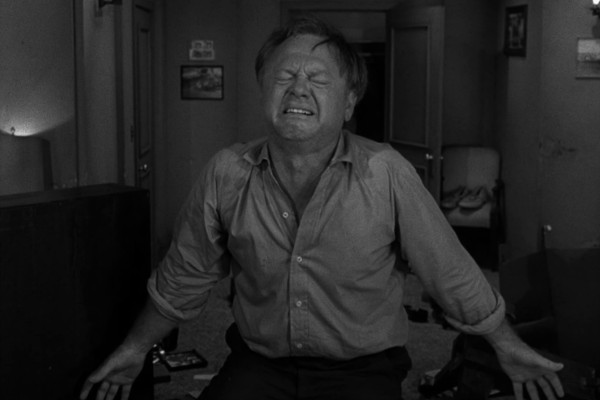
Bert Granet, who had produced the last five episodes to be made in season four, continued as producer at the start of the fifth season. After thirteen episodes were completed, he received a better offer elsewhere within CBS, and left the series. William Froug was brought in as his replacement, with Ninety Years Without Slumbering and Last Night Of A Jockey the first two under his watch. The difference between the two can be illustrated by this ranking. While Froug's episodes make up four of the top ten - including the entire top three - sixteen of the bottom twenty stories are his productions.
The Last Night Of A Jockey is one of the better Froug efforts. A single-set, single actor piece, with Mickey Rooney on impressively small sets to indicate his supernatural growth throughout. While The Twilight Zone often had a "moral in the tale", it can feel inordinately preachy in season five, even by its usual standards. Stories seem to be based around little more than someone getting their "just desserts", the irony of which is overlaboured by Rod, spoonfeeding the viewership. The rest of this okay entry is a retread of season two's Nervous Man In A Four Dollar Room, only this time there's no redemption. Rod likes to whale on Rooney's height in the introduction, despite the fact that, at 5'4, Rod was only two inches taller than the star of this episode, who was playing a five foot character.
But the real selling point of The Last Night Of A Jockey lies not with the fairly standard story it presents, but with the commentary track. The DVD boxsets of the original series contained 25 full commentaries, as well as microcommentaries on parts of episodes from Leonard Nimoy and Don Rickles, to say nothing of the wealth of extras including radio plays, comics and Rod Serling lectures. The Blu-Ray release went even further, giving buyers scores of extra new commentaries, which were informative... but none of which captured the full blend of irritation and disinterest that star Mickey Rooney produces here. It's not that Rooney is dispassionate all the way through - he regards the series as "interesting to do", that Rod Serling "was a great writer" and that Ralph Nelson "was just fantastic" - but most of his ire seems to be aimed at the poor guy given the chance of interviewing him for the track. Starting off by telling the interviewer "I don't care ... anything about it", he explodes when his height is mentioned, and it's generally all downhill from there. Highlights include his assertion that the youth of today won't be interested in the story but instead want to watch "sexxxxxxxxy things" or "spending trillions of dollars to make nothing." A truly unforgettable experience.
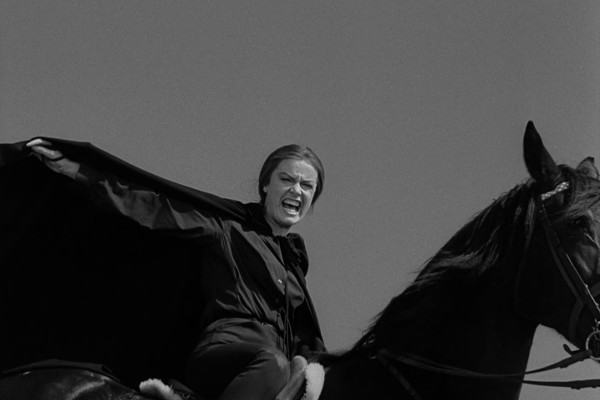
The punningly-titled Spur Of The Moment sees a horse-riding girl terrified by a screaming apparition which chases her on horseback. Eventually the girl grows older, and realises she made the wrong choice in marriage, and so appears to her past self to warn her... but can only be seen as a screaming apparition. Such a plot by Richard Mattheson is, if not exactly groundbreaking, fairly watertight.
Sadly, it falls somewhat under lack of thought in terms of the direction. Elliot Silverstein (who was behind decent to great entries The Obsolete Man, The Passerby and The Trade-Ins) opts for a close-up of the screaming lady right at the start, making it inexplicably obvious who it is. Doubtless many would have figured it out anyway, but as it stands, while still quite a decent episode, Spur Of The Moment is a story for people who found The Eye Of The Beholder too surprising.
As the mother of the girl, Marsha Hunt is, at date of writing, the oldest surviving cast member from the original series, due to celebrate her 100th birthday in October 2017.
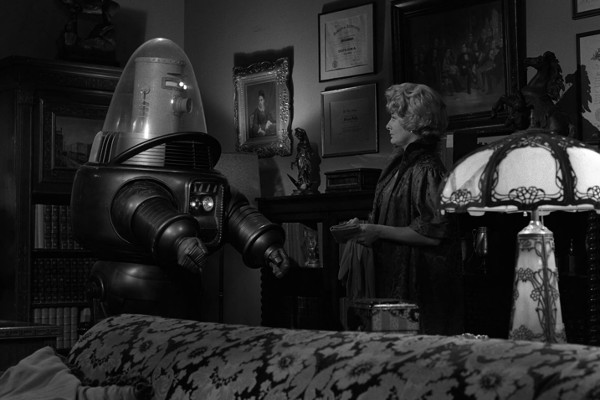
Season five isn't a great season by any means... the miss ratio is higher than before, and there is a sense of the series coming to a natural end. However, one of the elements that makes it so watchable is how extreme the characters and morals become. Although the series had toyed with immoral central characters before, episodes like Uncle Simon fill the screen with compassionless spite. Despite one of Serling's wordiest, "breaking out the thesaurus" scripts, the inspired bile that Uncle Simon (Cedric Hardwicke) and his niece Barbara (Constance Ford) hurl at one another is a delight.
Although well-meaning characters have met cruel fates before, as early as Time Enough At Last, the fate that Barbara meets at the end of this one seems particularly harsh as it comes on the back of 25 years of psychological torment. There is another hard irony to this episode... for an instalment where his niece repeatedly wishes the death of Uncle Simon, it's a sad fact that Hardwicke died less than nine months after it aired.
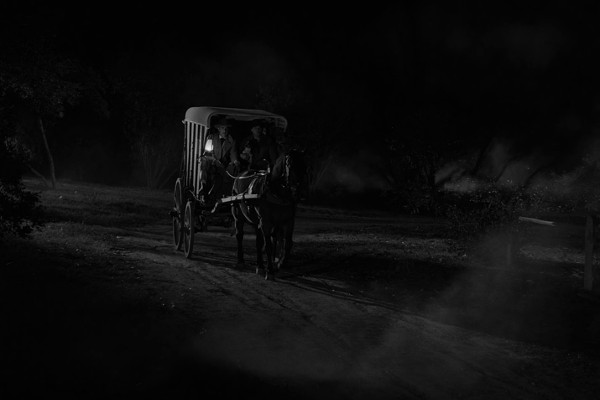
Written by Rod Serling from a story by Mike Korologos, Mr. Garrity And The Graves is a witty and perverse tale of a man who fools a town into thinking he can resurrect the dead... causing them to pay him to keep them in their graves. The various twists and turns of the plot can be seen coming from a mile away, but produce some amusement all the same... and, while the zombies at the end are puzzling because they haven't decomposed, it's amazing that the idea of the undead was able to get past the censors of 1964.
32 episodes of The Twilight Zone were full comedies - not counting some episodes that were relatively straight but had light elements, or episodes that were unintentionally funny. Of them, only 6 made their respective top tens in these season rankings, as opposed to 18 making the bottom ten in each season ranking. Of course, such things are relative, and many viewers may enjoy the comedies that are so lowly rated here. But what's frequently so frustrating is that the performance styles change. John Dehner is a standout as Mr. Garrity, but almost everyone else in the piece is encouraged to "play it big". If the comedy episodes had been acted "as real", it may have brought out more of the wit of the scripts, rather than each joke being oversold to a patronised audience. Mr. Garrity And The Graves is one of the better comedies of the series, but could still have been improved with a little faith in its true worth.
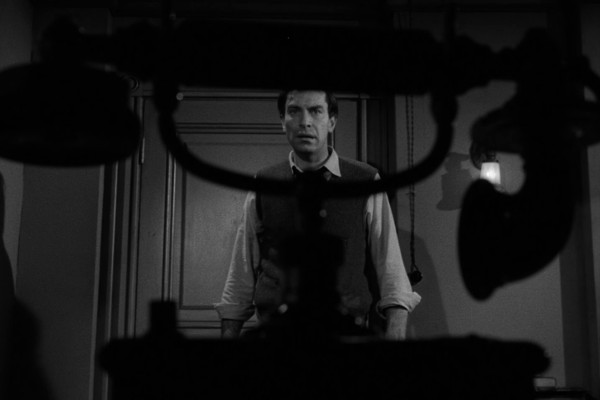
An intriguing thriller, well directed by Richard Donner and with a reliably strong central performance by Martin Landau as a Russian defector. It's never quite clear how Dutch John van Dreelen could be a Russian executioner, or why his assistant Boris is so incredulously dumb, but this is one of the better, more intriguing entries, taking place in just two rooms. The only real issue is that, like earlier entries The Silence and The Shelter, it contains no supernatural or science fiction elements of any kind, making it more of a decent piece of television rather than a decent episode of The Twilight Zone.
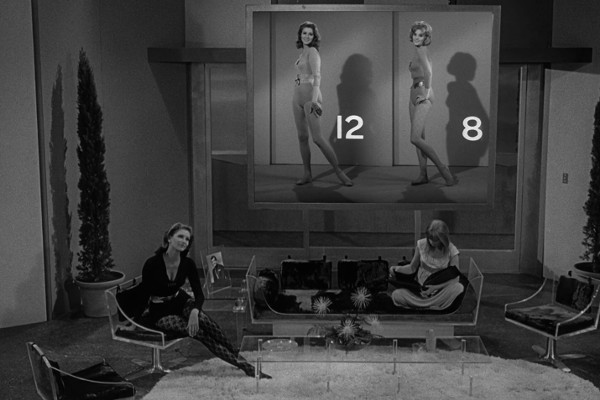
An episode that takes up where The Eye Of The Beholder left off, with a future society all choosing to have the perfect face and body, all except one woman's daughter who wishes to opt for non-conformity. As a topic of discussion, particularly in the age of plastic surgery, it's one worth exploring... but isn't, perhaps, enough material for an entire episode.
There is definite merit in the idea, and the revelation that the society caused the suicide of one character's father is quite chilling. There's also the performance of "ugly" Collin Wilcox, who produces genuine ire in an episode where others lean towards mild camp. In particular, Richard Long gets to ham it up as an Austrian-accented psychiatrist "Sigmund Friend", and then as Rex, the Doctor, who insists on an affectation with his little finger which both visibly distracts Pam Austin in their last scene together, and is impossible to take seriously in the advent of Dr. Evil in Austin Powers.
Perhaps the oddest stylistic choice is the unflattering costumes the actors are given to wear... Long is regarded as the ultimate perfection of man, despite the fact that a black leotard he wears as "Uncle Rick" reveals a prominent belly. Despite such criticisms, this is a decent episode, as highlighted by its fairly high position in this ranking. It was based on a 1952 short story by Charles Beaumont titled "The Beautiful People", with John Tomerlin writing the script as Beaumont was then too ill to complete it. Unlike the other two episodes to carry Beaumont's name in the season (Living Doll/Queen Of The Nile) which were ghostwritten by Jerry Sohl, Tomerlin actually receives an onscreen credit, the episode going out as "written by Charles Beaumont and John Tomerlin".